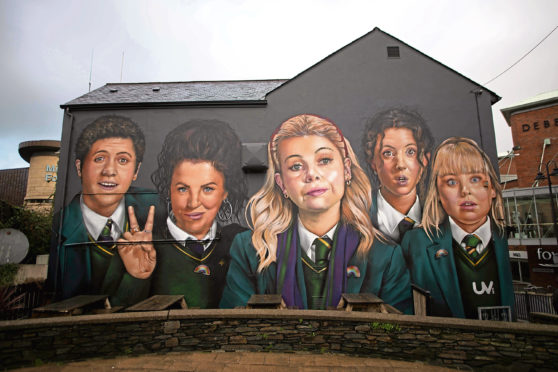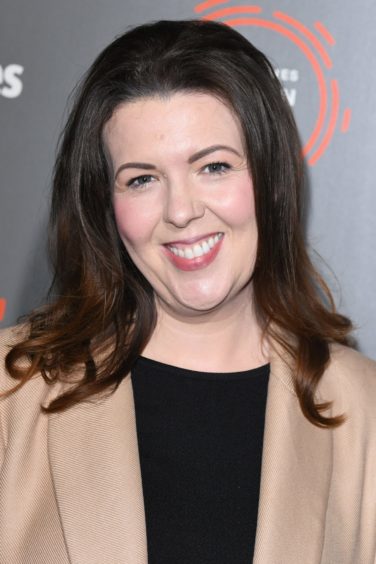
The Derry Girls sitcom has won legions of fans on TV, charting teenagers’ hilarious exploits against the backdrop of The Troubles in Northern Ireland.
Now a real-life version is winning fans – including the creator of the hit TV show.
Lisa McGee last week appeared on Talking Derry Girls, a podcast created by three women who experienced life in ’90s Derry, like the Channel 4 sitcom characters.
The podcast was inspired by the TV comedy – and Lisa told presenters Pauline Moore, Jeanie Messenger and Marie Louise Muir she was desperate to steal their childhood tales for a potential spin-off movie. “I was so annoyed that I hadn’t heard it before writing series three of Derry Girls,” said Lisa. “It’s just the best thing. I love the podcast so much – it’s the only podcast that isn’t about people getting murdered that I listen to now.”
The hosts of Talking Derry Girls became friends while working in BBC Radio Foyle in the ’90s. In the episode, Lisa talks about the responsibility of writing against the backdrop of The Troubles, especially the sensitivity around showing reports of a bombing at the end of the first series.
Although never clarified, it is understood that this referred to the Omagh bombing in 1998.
Lisa admitted to being nervous about addressing the topic sensitively. In the scene, characters watch news of the bombing, while teenagers dance with abandon on their school stage.
“I knew it was probably going to be tough for people so it was the biggest relief when that went out and people were OK with it,” she said.
The scene went on to win Radio Times readers’ top TV moment of 2018. Talking Derry Girls started in May through Scottish podcast production company The Big Light, and uses the Channel 4 comedy hit series as a backdrop to talk about growing up and working in the city.
Originally the show was intended to be more about the fight against crime rather than the one between Nationalists and Loyalists.
“I always wanted to write something about my school days and the convent girl experience,” said Lisa.
“I also had an idea about a group of teenagers solving crime. That’s where it started, that fell away and there was a bit more focus on the family. They were going to be Derry’s Famous Five. It became a much simpler show. It’s a very traditional show.
Lisa admits she was at first reluctant to acknowledge the backdrop of The Troubles in the script.
“It was show producer Liz Lewin’s idea to not let The Troubles drop off from the show. I thought it was going to be a pain but she was very clever and she convinced me to try it. The minute I got the pilot working I realised she was right.”

Enjoy the convenience of having The Sunday Post delivered as a digital ePaper straight to your smartphone, tablet or computer.
Subscribe for only £5.49 a month and enjoy all the benefits of the printed paper as a digital replica.
Subscribe © Shutterstock
© Shutterstock